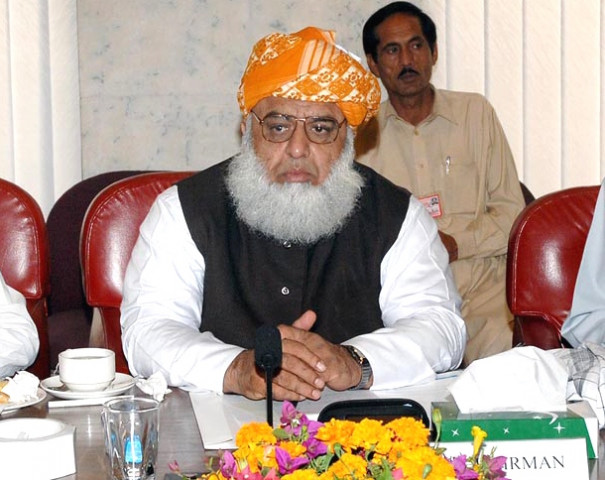Killing many birds with one stone
Maulana Fazlur Rehman is perceived as harmless enough by the big parties to be used as a go-between.

Killing many birds with one stone
The strength of the JUI-F is derived from hundreds of madrassas in Karachi, most of them Deobandi, some dating from Partition when some of the most celebrated Indian Muslim scholars relocated to Karachi. But the real fillip to the power of the Deobandis came from the historically large shifting of the Pashtun population to Karachi from the Tribal Areas of Pakistan and from Afghanistan. The Jamaat-e-Islami, which was once the dominant religious party in Karachi, suffered a decline in its strength because it was not ethnically Pashtun-based and because the south Punjabi seminarians from where pupils migrated to Karachi, were from an area where the Barelvis had lost out to the Deobandis (and many formed jihadi outfits), under the tutelage of a state looking for non-state actors.
Maulana Fazlur Rehman is far more politically savvy than leaders of other religious parties. In Karachi, he was not his moderate self but hardline and threatening in tone. His audience was fired up by his pledge to make Pakistan “truly Islamic”. More than in Islamabad, he emphasised the Taliban-like vision of a Pakistan under true Sharia after eliminating modern banking based on ‘riba’. He spoke on the subject of Pakistan’s “slavery” to America more vehemently than he would in Islamabad with an eye the strong Taliban and al Qaeda presence in Karachi. Seminarians from as far apart as Clifton and Korangi (two geographically and socially disparate neighbourhoods of the city) said in unison: “We don’t want any secular and liberal party to rule Pakistan.”
Maulana Fazlur Rehman’s aggression has been learned over time, starting from Lal Masjid where he followed his normal instincts to take a moderate line — only to be nearly manhandled in Multan at a major gathering of pro-Taliban clerics — and ending with a national consensus against America and its western allies. It is only fair that he should dispense with his dependency on the Jamaat in Karachi and challenge the ANP. Clearly, the rally put paid to the possibility of Mutahadda Majlis-e-Amal ever being revived.
The rally killed three fat birds with one stone: the ANP, the Jamaat, and, tangentially, the PPP. The MQM rally at Sukkur apparently hit out at the nationalists who recently raised such a stink together with the PPP over Altaf Hussain’s campaign in favour of more provinces in the country, but his familiar assault on the feudalism of Sindh was purely for the chastening of the PPP. Interestingly, the JUI-F line chastising “secularists” and “liberals” was aimed jointly at the PPP and the MQM. Among Maulana Fazlur Rehman’s many faces, one is defending the PPP against the Supreme Court in Islamabad, the other encouraging the PML-N to show muscle realistically on the issue of an early general election. He is perceived as harmless enough by the big parties to be used as a go-between. But his act of leaving the ruling coalition was the best gesture he could make to the Taliban and al Qaeda on the eve of America’s departure from the region and during a period of drift caused by Pakistan Army’s incoherent post-withdrawal Afghan policy.
Published in The Express Tribune, January 30th, 2012.














COMMENTS
Comments are moderated and generally will be posted if they are on-topic and not abusive.
For more information, please see our Comments FAQ